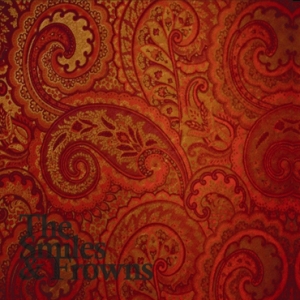The Smiles And Frowns - The Smiles And Frowns (Akoustik Anarkhy)
Early psychedelic quirkiness from Arizona's newest musical sons.
Released Aug 27th, 2010 via Akoustik Anarkhy / By Norman Miller
 Places can prove inspirational in different ways. For multi-instrumentalist duo Adam Mattson and Christopher James - aka The Smiles And Frowns - "the smell of taco stands, gasoline, and clean laundry on the tumbleweed filled breeze” they see in Phoenix, Arizona has spurred to them to produce an octet of quirky, charming songs as a form of escapism from a city they clearly enjoy a love-hate relationship with.
Places can prove inspirational in different ways. For multi-instrumentalist duo Adam Mattson and Christopher James - aka The Smiles And Frowns - "the smell of taco stands, gasoline, and clean laundry on the tumbleweed filled breeze” they see in Phoenix, Arizona has spurred to them to produce an octet of quirky, charming songs as a form of escapism from a city they clearly enjoy a love-hate relationship with. Echoes of psychedelia, children's shows and fairgrounds/circuses feed these short, idiosyncratic numbers, with the opener 'Sam' setting the tone through a leftfield stream-of-consciousness charting of a musician's rise and fall in less than three minutes. The sound is quirky, the rhyming memorable (you gotta like a band who neatly match 'cappucino' with 'casino').
Musically, comparisons might include anything from early Pink Floyd circa See 'Emily Play' and 'Bike' to vintage cartoon soundtracks, and if these guys had to choose three Beatles tracks they'd probably be 'Piggies', 'For The Benefit of Mr Kite' and 'Mean Mr Mustard'.
Though there's a unity of mood, each number revels in its particular aural quirks. Harmonica and train whistles haunt the deceptively simple 'Memory Man' ("He may be a devil/he may be a clown"), while an underlay of honky tonk piano holds the lolloping 'Huevos Rancheros' together to great effect. The title of 'March of the Phantom Faces', meanwhile, is in harmony with a musical setting that meshes childlike synth and circus tunes.
Two of the best tracks - 'When The Time Should Come' and 'The Echoes of Time' - use their quirky musical settings as a cleverly contrasting musical smokescreen to darker lyrics to show Mattson and James aren't just jokers. The first combines an almost mariachi vibe with pretty pop to encase one man's reflections on dying, while the charmingly jaunty country folk of the latter provides a foil for melancholy musings on better days gone by.
It's ironic that the longest track by some way - 'Mechanical Songs' - is also the least interesting, as if the strangeness of these songs can only work as little vignettes of 2-3 minutes. And even if there's nothing spectacular here music needs talents as quirky as this.





 All Content RSS Feed
All Content RSS Feed
Follow Bearded on...